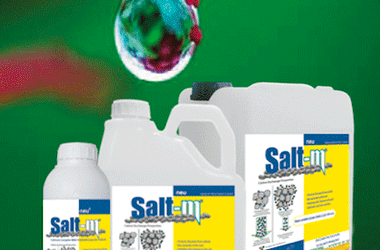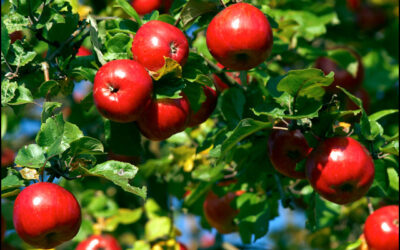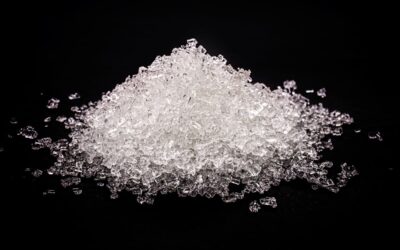NPK Soluble Fertilizer
 NPK fertilizer contains the nutrients needed for the healthy development of crops. Thanks to the nitrogen, phosphorus, and potassium it contains, NPK meets many of the substances needed by our farmers at once and takes its name from the abbreviation of these substances. Nitrogen with the chemical symbol N, phosphorus with P, and potassium with the symbol K are the basic elements of fertilizer. NPK fertilizers, which can be found in solid or liquid form, are used as a base fertilizer type.
NPK fertilizer contains the nutrients needed for the healthy development of crops. Thanks to the nitrogen, phosphorus, and potassium it contains, NPK meets many of the substances needed by our farmers at once and takes its name from the abbreviation of these substances. Nitrogen with the chemical symbol N, phosphorus with P, and potassium with the symbol K are the basic elements of fertilizer. NPK fertilizers, which can be found in solid or liquid form, are used as a base fertilizer type.
The use of NPK fertilizer has many advantages. Some of these advantages are as follows:
- Since NPK fertilizer contains many components, it provides rich nutritional support to crops in a single operation.
- It promises convenience in storage for our farmers.
- Composite fertilizers, which combine basic materials, promise savings.
- It also reduces the processing effort.
What are the Benefits of NPK Fertilizer?
As it is known, the three basic substances needed for the development of crops are potassium, phosphorus, and nitrogen. In addition, minerals such as iron and zinc can also be included in fertilizers. Basic NPK fertilizers:
- NPK fertilizer is homogeneously distributed in the root zone of the crops. It offers stable and long-term effects.
- NPK compound fertilizers applied during planting support crop development.
- The use of NPK fertilizer is preferred for soils that are poor in terms of nitrogen, phosphorus, and potassium. The applied fertilizer enriches the soil content, allowing the crop to become stronger.
- Fertilization increases the number of microorganisms in the soil.
- It helps to regulate the pH value of the soil.
- The water holding capacity of the soil increases with NPK fertilizer. In this way, irrigation efficiency increases, and frequent irrigation is not required.
- The seed germination rate is increasing.
- It is recorded that the quality and shelf life of the products have increased.
NPK fertilizers are categorized as compound fertilizers. In order for fertilizer to be called a compound, at least two of potassium, nitrogen or phosphorus must be included. Options with additional components, in which minerals are added, come up with the name of super-composite fertilizer. Fertilizers are named according to the ratio of nitrogen, phosphorus, and potassium in them.
NPK 15-15-15: It consists of 15 kg of pure nitrogen, 15 kg of phosphorus pentoxide (P2O5), and 15 kg per 100 kg of fertilizer. potassium oxide (K2O). NPK 15-15-15 fertilizer, which is used in soils that need potassium, is especially preferred for olive, fig, corn, sunflower, sugar beet, and potato cultivation. Fertilizer, which is preferred for growing crops in soils that are weak in terms of potassium, is given in the form of base fertilizer at planting and planting.
NPK 25-5-10: Fertilizer used for potato, grass, and tea growing, especially preferred for crops that remove excess nitrogen from the soil. NPK 25-5-10, which is indispensable for tea producers, can be used for vegetables whose leaves are eaten. It especially helps to eliminate nitrogen deficiency and can be used safely in soils with high phosphorus.
NPK 10-20-20: Fertilizer, of which 50% is filling material, contains nitrogen 10, phosphorus 20, potassium 20. It can be preferred for soils that require phosphorus and potassium support.
NPK 20-20-20: This NPK type provides the same support for all three elements in soils deficient in nitrogen, phosphorus, and potassium. It is especially used in the cultivation of citrus fruits, wheat, barley, paddy, sugar beet, and in the production of sunflower, hazelnut, walnut, lettuce, lettuce, cabbage, potato, melon, watermelon. In addition, our farmers who grow cotton, fruit trees, bananas, corn, field vegetables, carrots, beans, chickpeas, onions, and garlic can support their crops with 20-20-20.
Is There Any Harm in Using NPK Fertilizer?
There is no harm in NPK fertilizers in conscious use. However, fertilization without soil analysis may cause the reintroduction of sufficient minerals to the soil, and an excess of some elements may cause a problem. With regular analysis, applying a sufficient amount of NPK fertilizer does not cause any harm to our farmers. For these reasons, NPK fertilizer can be used in every geography from South Korea to Egypt in accordance with all climatic conditions.





